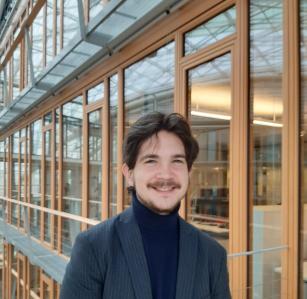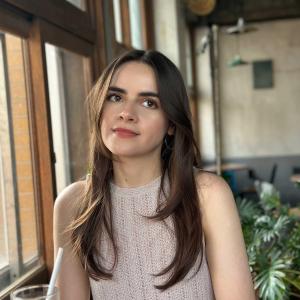« Nous avons constaté la nécessité de soutenir le marché pour le développement des technologies bleues en Europe. Nous avons réalisé que nous devions faire quelque chose qui va au-delà de notre approche habituelle, quelque chose que nous n’avions jamais fait auparavant. »

Pendant plus de 20 ans, René Hansen a aidé des entreprises du monde entier à se développer et à innover, dans des domaines allant du snowboard aux énergies renouvelables. Après avoir accumulé cette expérience à l’international, il a ressenti le besoin de s’ancrer plus près de sa Norvège natale. L’occasion s’est présentée lorsque Konrad Bergström l’a approché pour lui faire part de son ambition : construire des bateaux électriques.
« Je voulais concentrer mes efforts sur une entreprise qui accorde une véritable importance à la durabilité », explique René Hansen. « Lorsque Konrad m’a contacté, j’ai eu l’impression que c’était l’occasion idéale d’aligner mon travail sur mes valeurs et d’avoir un impact réel. »
Basée en Suède, l’entreprise que Konrad Bergström a fondée entend révolutionner le secteur de la navigation de plaisance en cherchant à rendre ses bateaux plus verts. X Shore associe la fibre de verre et de carbone afin d’optimiser le poids, les performances et l’impact environnemental. Résultat : ses bateaux émettent quatre fois moins de CO2 qu’une embarcation classique à essence et ils sont également plus silencieux. « La navigation de plaisance devrait permettre d’être en harmonie avec la nature », ajoute René Hansen. « Nos bateaux sont légers et économes en énergie, ce qui a une incidence significative à la fois sur la durabilité environnementale et sur les coûts de production. »
Les bateaux électriques de X Shore témoignent de la capacité du secteur nautique à devenir durable. Lauréate de prix tels que « European Powerboat of the Year » (bateau à moteur européen de l’année) et « Best of Boats » (meilleur des bateaux), X Shore bénéficie d’une reconnaissance croissante au sein du secteur. L’entreprise se distingue aujourd’hui comme le seul fabricant de bateaux de plaisance au monde ayant obtenu le label de durabilité Shades of Green du Centre pour la recherche internationale sur le climat (Cicero).
C’est pourquoi elle est l’une des entreprises retenues pour le programme Champions de l’économie bleue de l’UE, une initiative de la Banque européenne d’investissement et de la Commission européenne qui fournit un soutien consultatif gratuit aux 20 entreprises dotées des meilleures technologies et solutions dans le domaine marin pour relever les défis de l’économie bleue. Elle vise à renforcer leur compétitivité et à les préparer à un financement éventuel de la part d’investisseurs ou de la Banque européenne d’investissement, au moyen d’un prêt d’amorçage-investissement.
Dans le cadre de ce programme lancé en mai 2024, des entreprises de toute l’Europe ont été sélectionnées, allant de la robotique sous-marine aux solutions de transport maritime écologique, en passant par les bioraffineries, les applications de données satellitaires et l’énergie éolienne. Le fait d’inclure ces entreprises dans le programme salue leur statut de pionnières, qui transforment le secteur et le conduisent vers un avenir plus vert. Cette initiative vise à promouvoir une économie bleue durable et à souligner la nécessité d’agir pour protéger et restaurer les océans pour les générations futures.
Nourrir l’océan

Tandis que René Hansen cherchait un meilleur moyen de traverser la mer à toute vitesse, Véronique Raoul était attirée par les minuscules formes de vie sous sa surface.
Elle a toujours aimé profondément l’océan. « D’un côté, je viens d’une famille très enracinée dans l’agriculture et, de l’autre, mon père a servi dans la marine », explique-t-elle. À l’origine, elle voulait devenir océanographe, mais son parcours professionnel l’a entraînée vers les médias, l’innovation et le marketing. Au fil du temps, elle a ressenti le besoin croissant de faire partie de quelque chose ayant un impact. Cela l’a conduite à revenir à son premier amour : l’océan.
Elle s’est installée à Nice, dans le sud de la France. C’est là qu’elle a découvert Inalve, une entreprise qui cultive des microalgues marines et les transforme en un ingrédient durable pour l’alimentation animale. C’était exactement ce qu’elle recherchait et elle est rapidement devenue la présidente-directrice générale de l’entreprise.
Les microalgues sont de minuscules organismes photosynthétiques. Elles jouent un rôle déterminant pour les écosystèmes aquatiques et le développement durable de produits. Ce qui distingue Inalve, c’est la façon dont elle produit ses microalgues. « Nous les faisons pousser sous la forme d’une biopellicule, qui est cultivée sur une bande rotative qui, de temps à autre, est plongée dans l’eau », explique-t-elle. « Ainsi, nous optimisons l’accès à la lumière et nous récoltons en douceur une biomasse naturellement concentrée. Cela nous permet de consommer 80 % moins d’eau que les autres systèmes et de réduire notre contribution aux changements climatiques de 60 %. »

Cette technique donne une biomasse riche en microalgues vivantes et en exopolysaccharides, connus pour stimuler l’immunité. « Les producteurs ont besoin de microalgues vivantes, comme dans l’océan, pour que les larves dans les pouponnières se transforment en jeunes poissons ou en crevettes », explique-t-elle. « Nous apportons une solution qui non seulement aide les larves à devenir des adultes plus résistants aux agents pathogènes, mais aussi qui accélère leur croissance, simplifie et sécurise la logistique, et augmente les taux de survie. »
Elle a des répercussions importantes sur l’aquaculture, un secteur qui gagne de l’importance en raison de la demande croissante de farine de poisson. Elle contribue également à rendre le secteur plus durable, chaque kilo d’algues produit absorbant deux kilos de CO2 atmosphérique. Plus l’aquaculture est productive, moins nous avons de raisons de gâcher les ressources naturelles de l’océan. Avec le soutien consultatif du programme Champions de l’économie bleue de l’UE, l’entreprise prévoit d’étendre ses installations en Europe et d’accroître sa production.
- En savoir plus sur une entreprise autrichienne qui lutte contre les émissions de carbone en investissant massivement dans la recherche dans les énergies vertes et les technologies de pointe.



